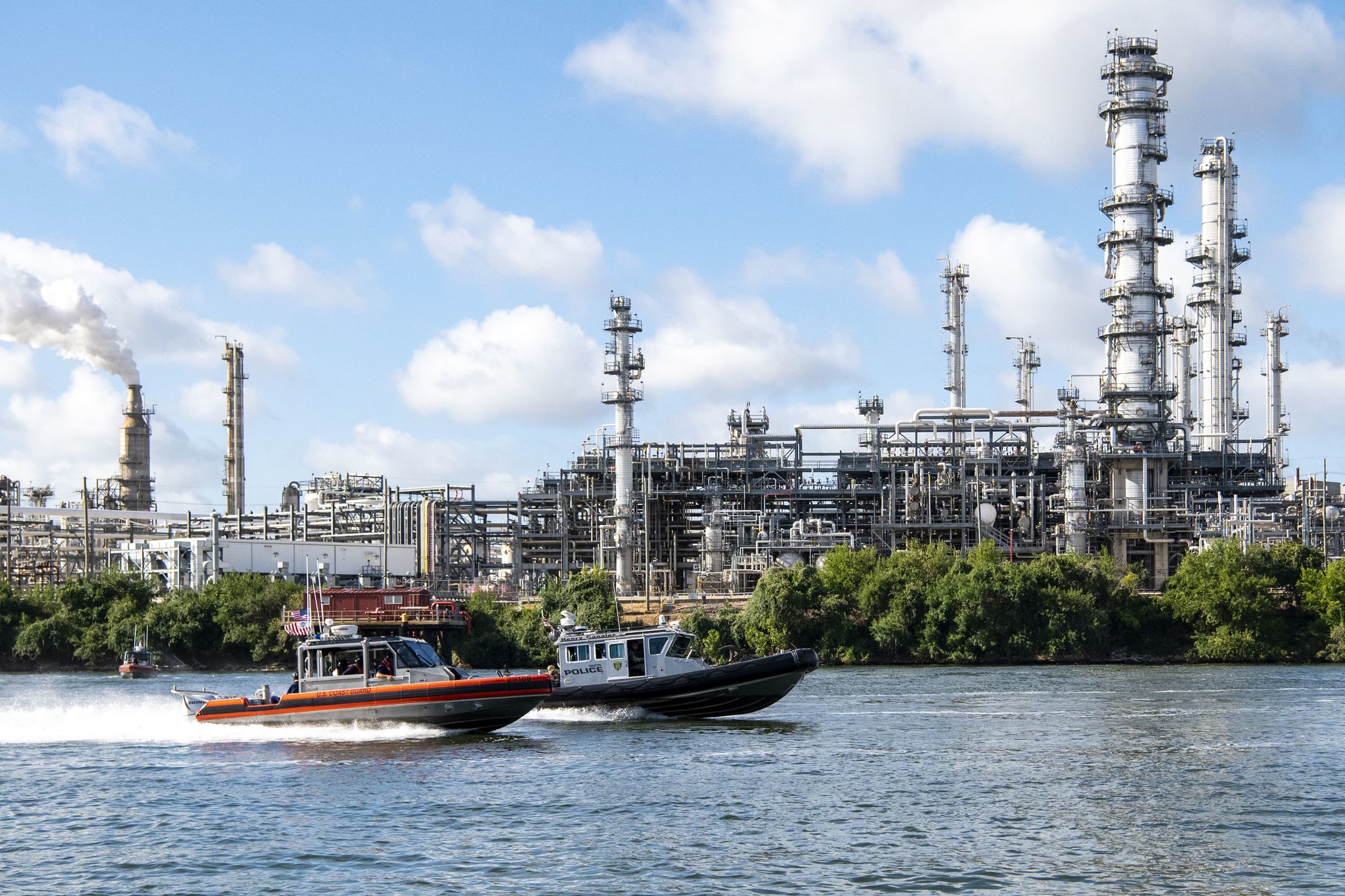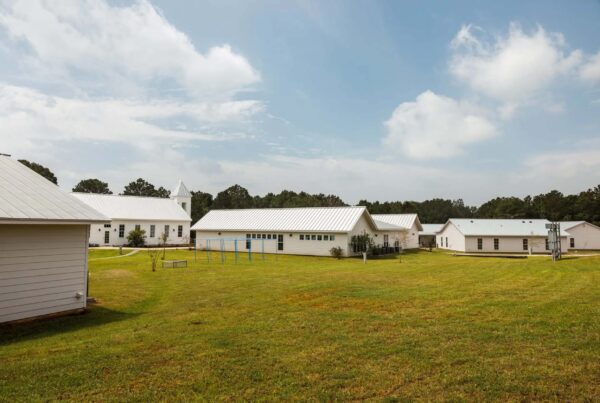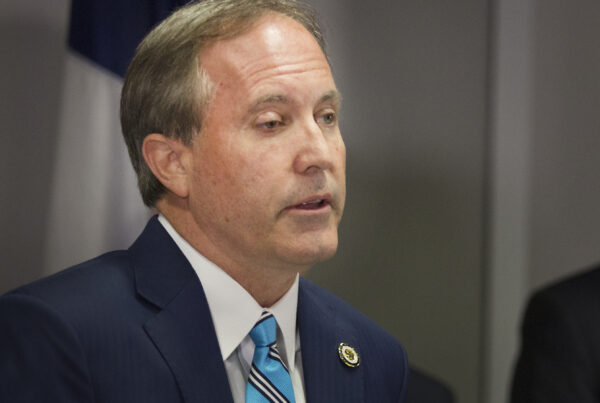The right to breathe clean air. That was the motivation cited by the Biden administration as the Environmental Protection Agency announced stricter controls on toxic emissions from petrochemical plants last month.
James Osborne, energy and politics reporter for the Houston Chronicle, has been looking into what impact this crackdown could have on an area home to several of these operations: the Houston Ship Channel. He spoke with the Standard about what this means for communities along the Channel.
This transcript has been edited lightly for clarity:
Texas Standard: Walk us through the basics of these new controls proposed by the EPA. What would they do?
James Osborne: Well, its extremely complicated set of rulemaking extends over thousands of pages of modeling and whatnot. But the gist of it is they’ve set standards on a number of toxins that petrochemical plastic plants sort of routinely put into the air. And some of these pollutants haven’t been regulated before. And now they’re telling the plants that they actually need to install air monitors on their fence lines to track this stuff. It’s not just good enough to say, you know, we’re sort of analyzing our operations and this is kind of what we’re estimating our emissions are going to be for these things. They want an actual hard reading at the property line saying, you know, this is how much of this stuff is actually going into the surrounding neighborhoods.
So you could literally monitor it by just looking at the readings that they are providing at their fenceline?
Right, now that’s what the EPA says. The petrochemical companies take some issue with some of this, saying it’s not that simple; there’s inevitably background pollution. And, you know, the ship channels – there’s a lot of these facilities there. So you’re going to have, you know, just sort of “who’s pollution is whose?” I mean, it’s going to be a little tricky.
Well, I mean, that raises the question, how do you enforce this, and who’s responsible for enforcing?
I mean, ultimately, with all these air pollution rules, it’s really like on the company – they’re going to install the monitors; they’re going to watch the readings. It’s beholden to that. Were they to ever falsify some of that stuff, I mean, the penalties would be huge; it’s not worth it. I mean, the system is set up to really allow these guys to sort of pollute to a certain amount: It’s a calculation by government that, yeah, this stuff that we’re breathing isn’t great – it definitely poses a cancer risk, as well as other disease – but at the end of the day, these are huge industries, lots of jobs. And all of us use this stuff every day – plastics, you know, all these products are just part of our everyday lives.
Yeah, but self-policing is something that that strikes me as well. I guess a lot of folks in the community would say, is this really going to accomplish anything?
Yeah, I mean, I think it certainly will. The EPA, they’ve been at work cracking down on sort of the refining, petrochemical, industrial sectors at large for years. And, you know, air quality has improved. It’s certainly not fast enough, as people who live in the communities surrounding these plants would like – who are breathing a much higher concentration of this stuff than the general public is.
So it will make a change, and certainly the companies will have to install all this equipment; they’re going to have to hire people. And basically, just to close the loop on the monitoring, if they do see elevated levels, they’re going to have to go find the leaks in the plant – you know, these are thousands of sections of pipe spread across these facilities – they’re going to have to go find that leak, and they’re going to have to fix it.
Well, now, James, I know you’ve been covering this for some time, and I imagine you’ve spoken with residents of those communities that surround the ship channel. What do you hear from them, and how concerned are they about air quality and the direct impact of some of these pollutants?
I mean, they’re all concerned. How they feel about it – you know, it was mixed. I mean, a lot of people work at these plants, so this is like part of their livelihood. So it’s sort of to some degree a tradeoff. But you have others – you sort of have generational, like, illness. I was speaking to one woman, she suffers from fibromyalgia, which is a genetic disorder, you know, unrelated – well, scientists don’t necessarily believe it’s related to pollution – but it makes her more sensitive to things. And this is something that runs in her family. And they basically had generations of this family – she grew up first in Mexico in a coal mining town and then moved to the ship channel when she moved to America. But she’s lived around pollution her whole life, and she’s had consistent health issues that whole time.
And now her niece is suffering from the same thing. The interesting thing is, her sister decided to move – they’d had enough of living close to the ship channel, and they moved to a neighborhood further away – and suddenly the little girl is feeling better. Now, you know, who’s to say exactly what’s causing that? But it’s interesting, and you often hear these anecdotal stories from people about the sort of impacts of living near this stuff.
This rule is set to go into effect next year. Are we likely to see any legal challenges or other challenges to it?
There’s a good chance of that, yeah. Right now, this is only a proposed rule. The petrochemical companies are already lobbying the EPA to sort of cut this thing back. They say this is going to be hugely expensive. How expensive it’s going to be, what it does to industry is unclear. The EPA sort of has one estimate; the companies are still doing the math, but they say they are woefully underestimating how much this is going to cost them to do.
You know, I think part of the consideration will be for the Biden administration: I mean, there has been this huge petrochemical boom in Texas and along the Gulf Coast at large over the last five, 10 years, kind of coming out of the natural gas fracking boom. So it gives America a real advantage when you look at the global economy. So all these things sort of get balanced against each other, and the oil and petrochemical companies are going to do their best to try to weaken this thing as much as possible.














